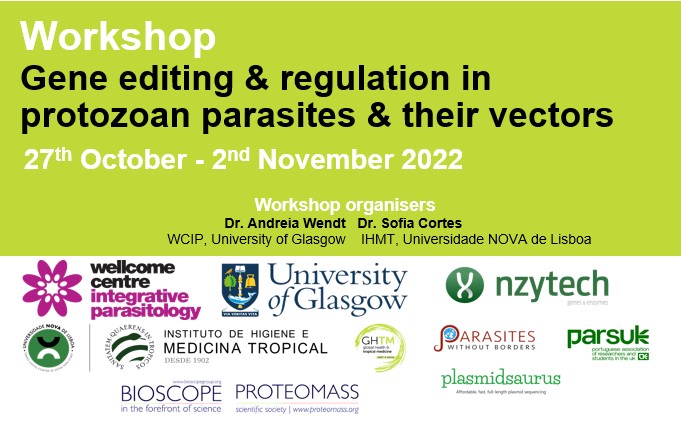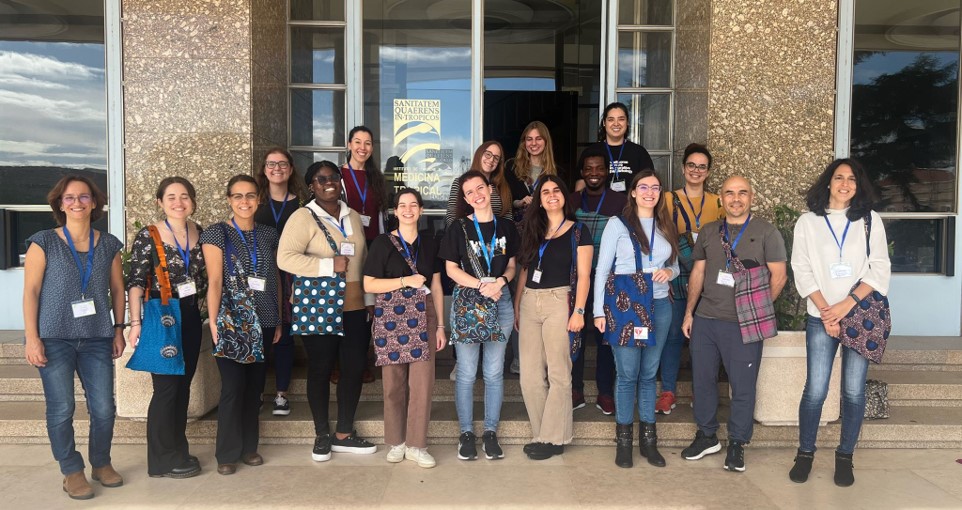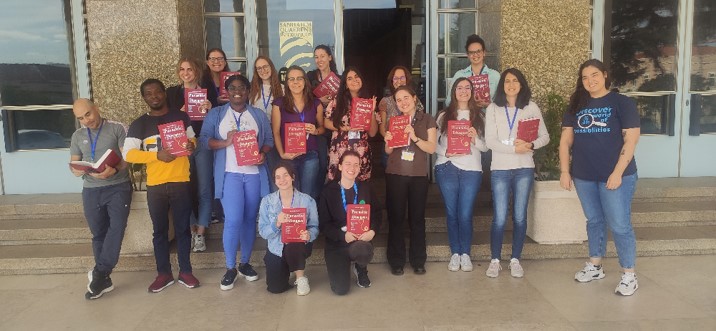The Workshop “Gene Editing and Regulation in Protozoan parasites and their Vectors” co-organized by Andreia Wendt (WCIP/UofG, UK) and Sofia Cortes (IHMT NOVA, PT), members of the Vector Borne Diseases, Global Health and Tropical Medicine group (VBD/GHTM), took place from the 27th of October till the 2nd of November 2022.
This workshop, organized as a 2-day webinar and a 3-day Hands-on aimed at i) sharing the latest advances on gene editing and regulation in protozoan parasites, as well as their vectors, ii) aligning academic research with industry requirements to enhance translational research potential and iii) challenging an interactive discussion between participants and speakers, towards advancing the field.
The webinar, held on the 27th and 28th October counted with a panel of 18 international leading experts who discussed the latest advances in the field, shared their work progress and highlighted the gaps requiring attention. With a total of 214 participants attending from 39 different countries, the webinar sparked an impressive interaction between speakers and participants.
“It was incredible to see all the tools we already have in hand to study parasite biology and fast track solution for protozoan parasitic diseases control”, highlighted Andreia Wendt.
The second part of the workshop included a Hands-on course on “Gene editing in Leishmania”, from the 31st of October till the 2nd of November, at IHMT-NOVA, joining 15 participants from 7 countries. Pegine Walrad from the University of York (UK) closed this 3-day course with a keynote talk on Investigating trans-regulators of the Leishmania lifecycle.
Sofia Cortes underlined how this course was “relevant for those young scientists looking to learn more on gene editing techniques”.
After unanimous positive feedback on the event by both speakers and participants, the organizers consider that the workshop was “an absolute success and future editions may be foreseen”.
This Workshop was sponsored by the Wellcome Centre for Integrative Parasitology, from the University of Glasgow (WCIP/ UofG, www.gla.ac.uk/research/az/wcip), GHTM, Parasites Without Borders (parasiteswithoutborders.com), NZYtech, Plasmidosaurus, Bioscope/ Proteomass and PARSUK.




